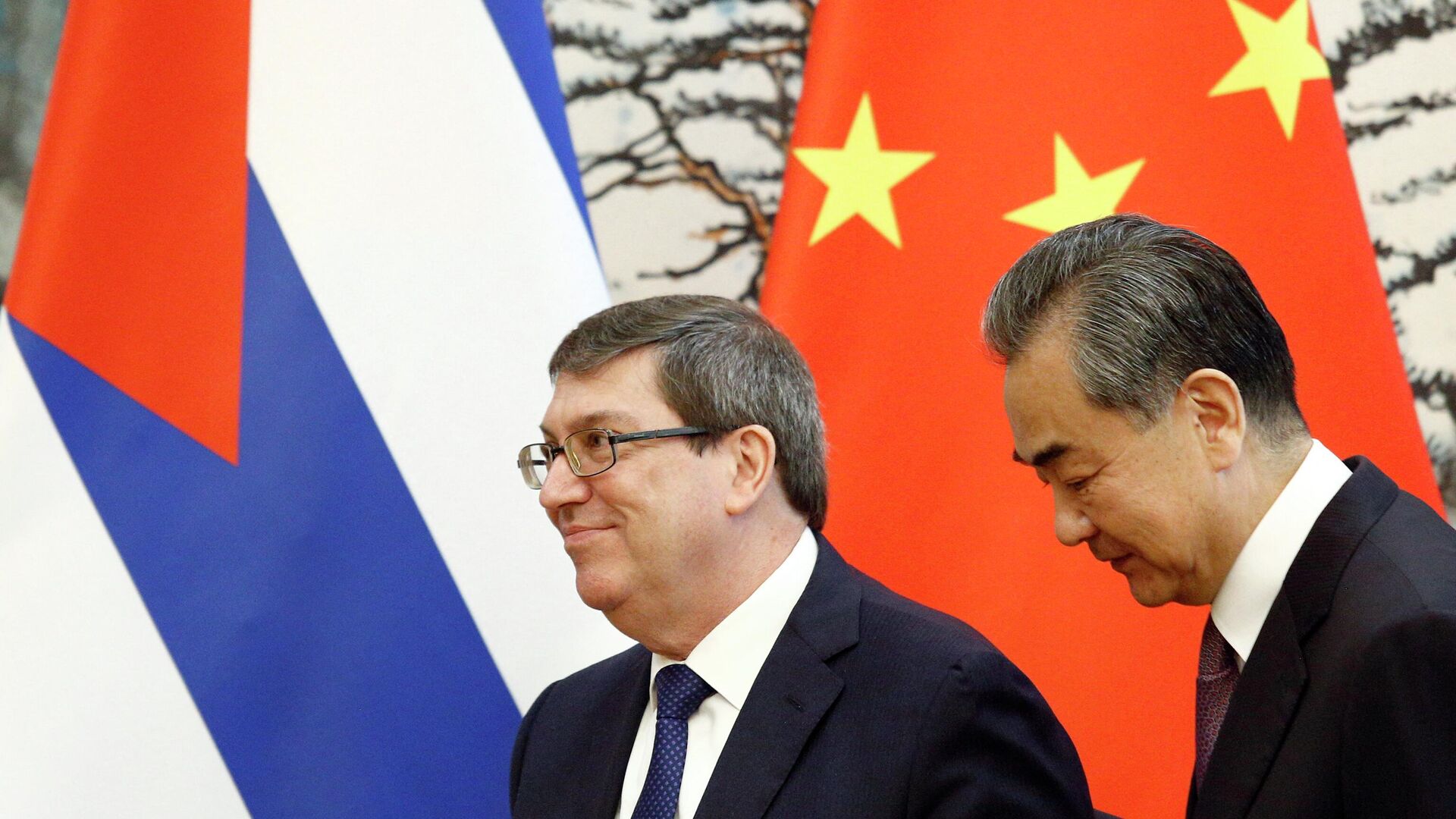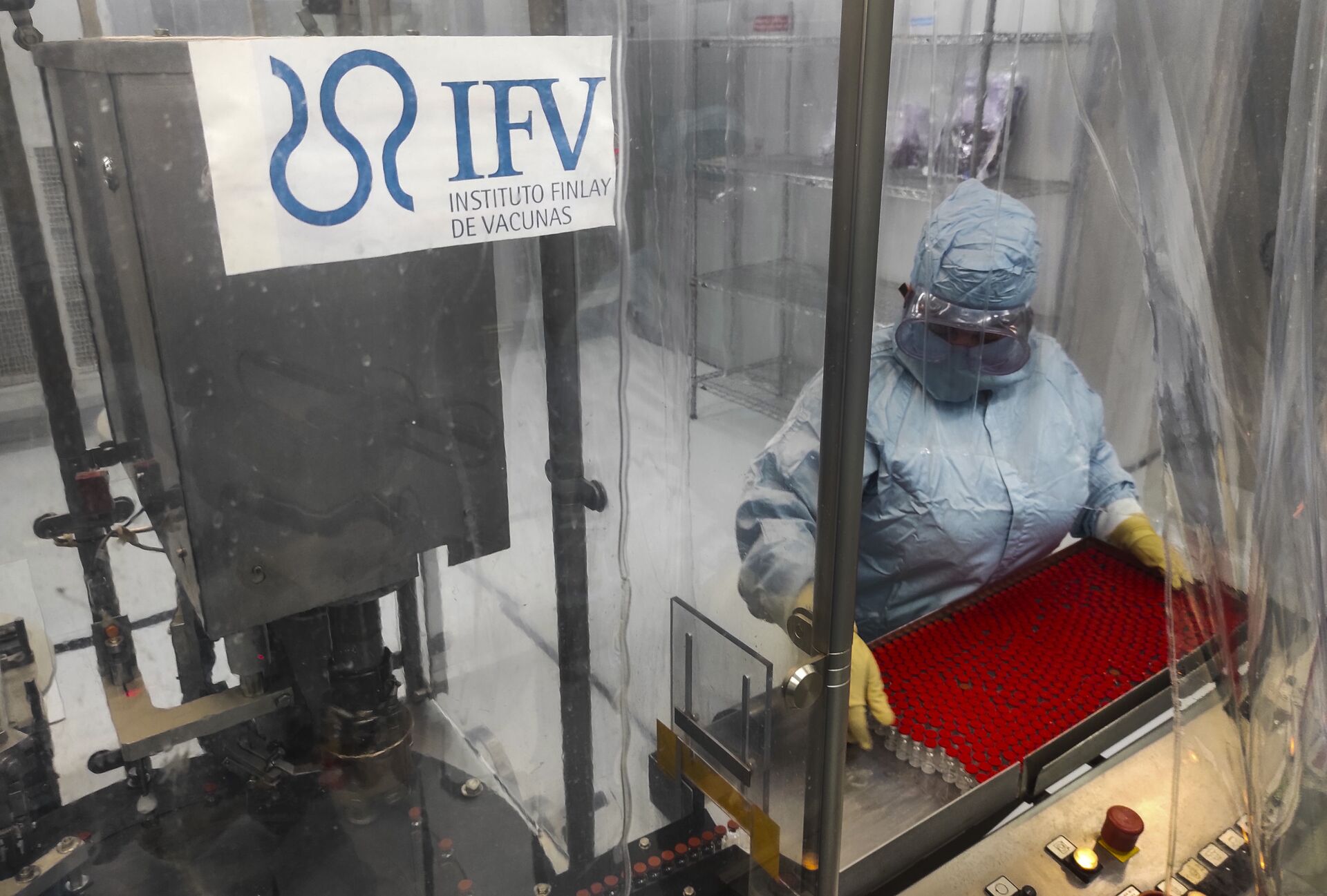China, Cuba File Patent for Jointly-Produced ‘Pan-Corona Vaccine’ for COVID-19, Related Viruses
20:36 GMT 03.06.2022 (Updated: 10:38 GMT 29.03.2023)

© AFP 2023 / FLORENCE LO
Subscribe
In spite of a US-directed blockade against trade with Cuba, the socialist island nation was able to develop five COVID-19 vaccines and inoculated 95% of its population against the virus. China similarly produced a colossal amount of two different vaccines for its 1.4 billion-strong population and much of the Third World.
Cuba and the People’s Republic of China have filed the first patent for a vaccine against not just COVID-19 and its many variants, but which could also be effective against several related viruses, the Cuban daily Granma reported on Thursday.
According to Eduardo Martínez Díaz, president of the state-owned umbrella group BioCubaFarma Business Group, the patent was presented at the National Intellectual Property Office in China recently. The vaccine is a product of collaboration between the biotechnological sectors of the two socialist states.
Doctors from Cuba’s Ministry of Public Health (MINSAP) announced the endeavor in a March 2021 editorial published in the British Medical Association journal The BMJ, noting the project would be based at a facility in Yongzhou, Hunan Province. The letter said the project arose following a Chinese request, although according to Granma, work at Yongzhou on a vaccine for the coronavirus family of viruses - which includes SARS, MERS, and the common cold, as well as COVID-19 - began in 2019.
Diaz said Thursday that such efforts “have the purpose of achieving effective vaccines against coronaviruses, and would not only have value in the current pandemic, but could also be effective against the appearance of new pathogens belonging to this family of viruses.”
According to Granma, Pan-Corona is based on parts of the SARS-CoV-2 virus that haven’t changed between variants of the virus, which have frustrated other vaccination efforts around the globe. The vaccine is a recombinant-type antigen of the same type used to make the hepatitis B vaccine as well as two of Cuba’s five COVID-19 vaccines, including Abdala.

Technician Mayelin Mejias works with the "Soberana 02" COVID-19 vaccine at the packaging processing plant of the Finlay Vaccine Institute in Havana, Cuba, Wednesday, Jan. 20, 2021. The director of the Finlay Institute said that Cuba hopes to immunize the country’s entire population this year with their own “Soberana 02” vaccines.
© AP Photo / Yamil Lage
Cuba’s medical sector is among its strongest, and has served as a cornerstone of its economy and its cooperation with other Third World nations. Cuban doctors work in underserved communities across Latin America, Africa and Asia, providing essential care they might not otherwise receive. It has also produced advanced medicines, including a vaccine against lung cancer, and five COVID-19 vaccines.
Last month, Iran inaugurated a new vaccine factory to jointly produce Cuba’s Soberana 02 vaccine, the world’s first conjugate vaccine against COVID-19. The effort is part of a yearlong project between BioCubaFarma and Iran’s Pasteur Institute. Like Cuba, Iran has been subjected to stiff US economic sanctions that greatly exacerbated the COVID-19 pandemic there. Iran was the second country hit by the pandemic in early 2020 after China and was unable to import vital medical materials to treat patients.
China, similarly, has developed a robust biopharmaceutical industry that has produced several COVID-19 vaccines. In addition to vaccinating nearly all its 1.4 billion people, China has also exported massive amounts of vaccines to the Third World, pledging in November 2021 to send another billion vaccines to Africa after exporting 2 billion shots globally that year.
Thursday’s announcement follows a previous discovery made by researchers at Shanghai’s Fudan University in February, who said they had developed a synthetic antibody that could neutralize the Omicron variant of COVID-19, a variant that’s able to evade patients’ immune protections caused by immunization or prior infection.
